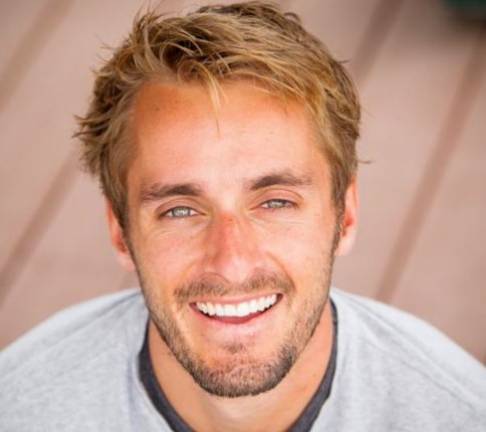Helping young scientists succeed

Vincent Joralemon teaches science at Frank McCourt High School on the Upper West Side. Among the challenging topics he covers with his students are genetic barcoding, bioengineering and neuroscience. But to hear him tell it, Joralemon isn’t exactly Einstein. “I don’t think I’m very good at science,” he said. “So I can understand where students who maybe don’t have a lot of experience in science are coming from.”
Not very good at science? Tell that to the Society for Science and the Public, which recently awarded Joralemon a special grant to “mentor underrepresented and low income students and guide them in entering science research competitions.” Joralemon was one of just 60 teachers to receive the grant, out of applicants from 33 states and Washington, D.C.
“He’s very passionate about conducting authentic research and rigorous scientific experiments with students,” said Maya Ajmera, CEO of the Society, a non-profit organization that provides funding and support for underserved schools and teachers to enhance and further scientific research. “He’s really committed and passionate.”
Since the program first launched in 2015, more than 2,000 students have worked with the Society’s Advocates, as the grant recipients are called. “Ninety percent of those students are low-income, and seventy percent are of an under-represented ethnicity,” a spokesperson for the Society said.
A Bond With His StudentsJoralemon, the only grant awardee from the New York City area, will receive a $5,000 stipend, an all-expenses-paid trip to Washington DC, and continued funding and support throughout the year as he continues to mentor his students and encourage them to meet the challenge of science competitions. (As one of eight “Lead Advocates,” he will also oversee groups of Advocates.)
Frank McCourt High School primarily serves students from low-income or under-served backgrounds. “I don’t know what every student is going through,” Joralemon said. “But I try to make an environment in my class that students can bring their own experiences and solve problems based on their own experiences.” With his guidance, Joralemon’s students have created everything from a sensor that detects dislodgment of an endotracheal tube in neo-natal babies, to a lullaby-singing machine which starts if it senses a fussing baby.
Joralemon, who started his teaching career at Frank McCourt as he was finishing his master’s degree in education, said the staff and administration really helped him get on his feet as an educator.
He has forged close bonds with his students. He calls them “my kids” and spoke with pride about one student who stood out to him some years ago, “She could do anything, and she didn’t have crazy skills, she just believed in herself,” Joralemon said. “The thing I loved about her is, we never won anything, we just liked the process of it. And that’s the kind of lesson I take away.”
A Shared VisionJoralemon’s approach clearly resonated with the folks at the Society. “Our vision is that every young person in this country should know that they can be a scientist or engineer if that’s what they want to do,” said Ajmera. “We believe that competing in these science competitions [students will realize] ... ‘I can be a scientist.‘ or ‘I can be an engineer when I grow up.’”